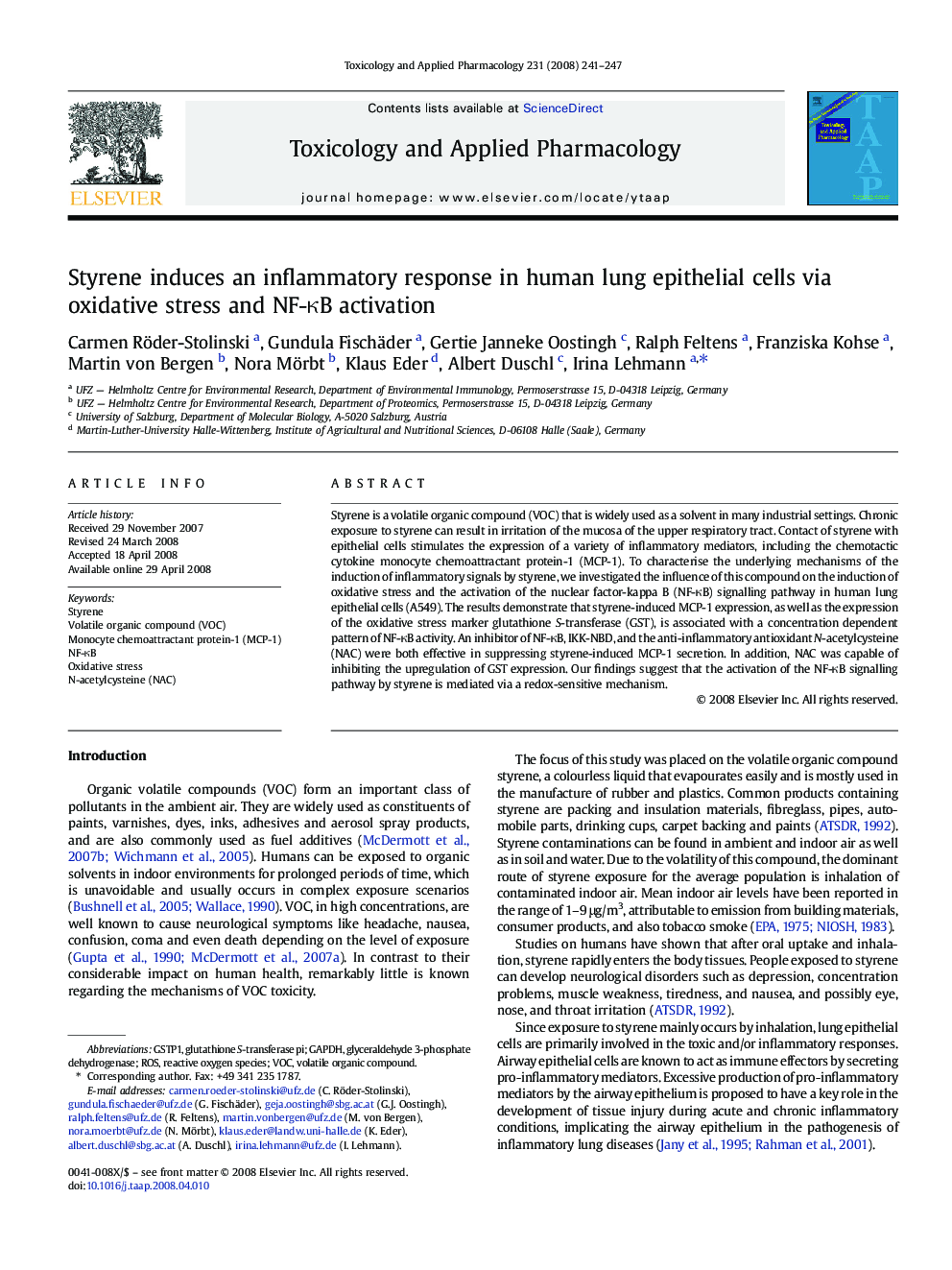| Article ID | Journal | Published Year | Pages | File Type |
|---|---|---|---|---|
| 2570252 | Toxicology and Applied Pharmacology | 2008 | 7 Pages |
Styrene is a volatile organic compound (VOC) that is widely used as a solvent in many industrial settings. Chronic exposure to styrene can result in irritation of the mucosa of the upper respiratory tract. Contact of styrene with epithelial cells stimulates the expression of a variety of inflammatory mediators, including the chemotactic cytokine monocyte chemoattractant protein-1 (MCP-1). To characterise the underlying mechanisms of the induction of inflammatory signals by styrene, we investigated the influence of this compound on the induction of oxidative stress and the activation of the nuclear factor-kappa B (NF-κB) signalling pathway in human lung epithelial cells (A549). The results demonstrate that styrene-induced MCP-1 expression, as well as the expression of the oxidative stress marker glutathione S-transferase (GST), is associated with a concentration dependent pattern of NF-κB activity. An inhibitor of NF-κB, IKK-NBD, and the anti-inflammatory antioxidant N-acetylcysteine (NAC) were both effective in suppressing styrene-induced MCP-1 secretion. In addition, NAC was capable of inhibiting the upregulation of GST expression. Our findings suggest that the activation of the NF-κB signalling pathway by styrene is mediated via a redox-sensitive mechanism.
